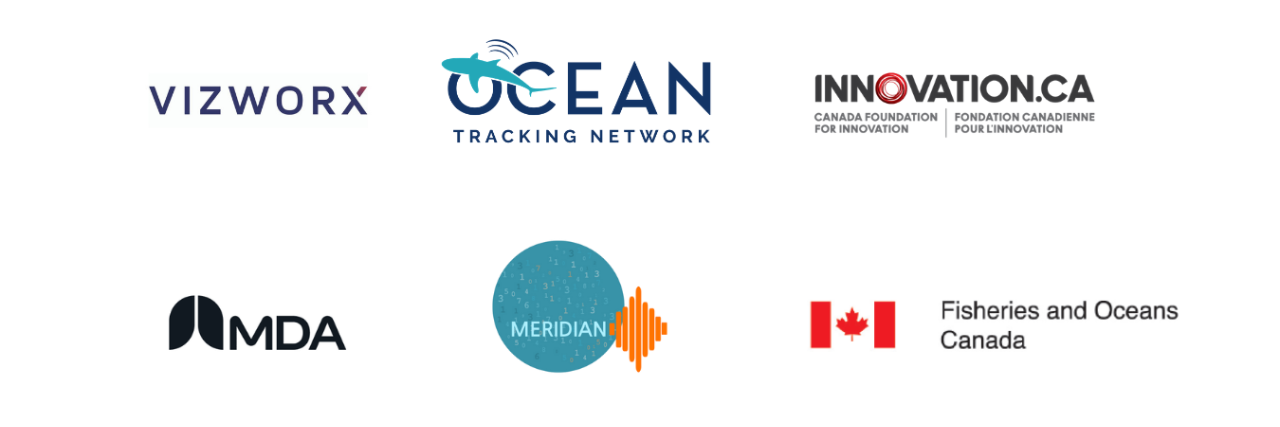- About Us
- Services
- Stories
- Faisal Beg – Algorithms to Advance Research in Medicine
- Yasutaka Furukawa – Smart Building Technologies to Enhance Living Spaces and Create Opportunities
- Mo Chen – AI to Create Safe and Practical Robotics
- Sheelagh Carpendale – Understanding Data Through Interaction and Visualization
- Innovation to Improve 3D Navigation
- Voice AI is Helping Shoppers Make Better Decisions
- Geographic Information Science Can Help Better Track COVID-19
- Deep Learning to Inform Medical Diagnoses
- Protecting Killer Whales from Marine Traffic
- Using Big Data to Boost Athletic Performance
- Machine Reading for Literary Texts
- Finding a Cure for HIV with Big Data
- Linked Data for Women's History
- How Big Data Can Combat Fake News
- Algorithms for Safer Streets
- Discovering Wilde Data
- Deep Blue Data
- Big Data Meets Big Impact
- Previous Next Big Question Fund Projects
- Data Fellowships
- Using Data
- Upcoming Events
Avoid and Detect
SFU uses Avoid and Detect technologies to keep vessels safe and protect our oceans.
Avoid and Detect technologies can be used to protect oceans and at-risk species, detect illegal activates and secure borders. SFU’s Big Data Hub is partnering with government and industry to save at-risk species, stop human trafficking and illegal fishing, and secure our borders.
Helping government protect fisheries and borders and prosecute crimes.
Unreported and undetected ocean traffic creates maritime border security issues, poses a threat to human rights from human trafficking, and is a growing threat to fish stocks, costing billions of dollars each year. However, ‘dark vessels’, which do not broadcast their location or appear in public monitoring systems, avoid detection due to the lack of a comprehensive detection system to locate them. SFU professor of computing science Uwe Glässer is using satellite monitoring, artificial intelligence, big data analytics and data visualization techniques to recognize these ships, add them to a list of untrusted vessels and ultimately prosecute the owners to protect global fisheries and marine ecosystems.


A neural network to protect endangered southern resident killer whales from potentially fatal ship strikes.
SFU researcher Ruth Joy is using artificial intelligence and machine learning to develop a tool to predict the movements of killer whales so ships can avoid collisions with this endangered species. By using a network of hydrophone nodes to monitor sounds and collect acoustic data, Joy and her team are creating a framework for a comprehensive advance-warning system for vessels or marine traffic controllers to reduce the chance of whales colliding with commercial vessels. This work is supported by funding from Fisheries and Oceans Canada.
Enabling data-driven decision making in marine environmental management.
MERIDIAN is a multi-disciplinary consortium of ocean researchers, computer and data management professionals building Canadian data infrastructure for underwater acoustic tracking. Hydrophones and other acoustic recording devices are used to record underwater sounds produced by marine mammals, waves, and ships. These devices capture massive amounts of unstructured data, which is difficult to manage. To improve discoverability, accessibility and reusability of underwater acoustic data, MERIDIAN has leveraged machine-learning techniques and created a data discovery platform. MERIDIAN team members are based at multiple universities including a team from SFU’s Big Data Hub.


Enabling unmanned arial vehicles and robots to avoid and detect nearby objects.
Autonomous mobile manipulation will be a central theme in the next generation of robotic manipulation. Robots will serve critical functions such as helpers in homes, care centers and other varied environments where intelligent devices need to interact with humans.
SFU researchers, Kamal Gupta and Michael Hegedus are working on systems that autonomously scan their environment, detect objects of interest, using machine learning and artificial intelligence to classify them and make decisions about the their nature, and trigger automated maneuvers to avoid collisions or perform tasks. This can enable robots to retrieve medicine placed on a shelf for example, which can be challenging for people with mobility issues. These systems can enable robots to perform intricate movements with less human interaction.
Improving space-based surveillance
SFU, in partnership with the Canadian Space Agency and MDA, are developing next-generation technologies that further expand Canada’s leadership in synthetic-aperture radar (SAR) at SFU's SARlab. New, space-based SAR provides reliable, frequent and broad-area surveillance for defence and national security, including daily monitoring of sea ice to enable safe navigation through ice-infested waters, and monitoring and safeguarding national assets, urban infrastructure, natural resources and the environment.

Past Partners




